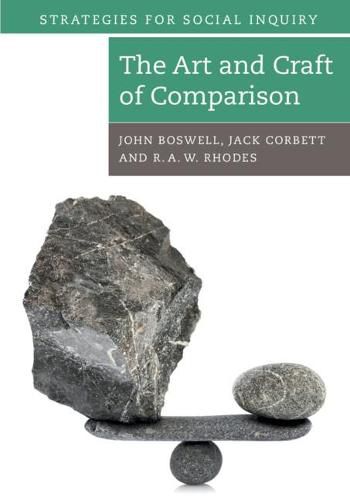Readings Newsletter
Become a Readings Member to make your shopping experience even easier.
Sign in or sign up for free!
You’re not far away from qualifying for FREE standard shipping within Australia
You’ve qualified for FREE standard shipping within Australia
The cart is loading…






Is it possible to compare French presidential politics with village leadership in rural India? Most social scientists are united in thinking such unlikely juxtapositions are not feasible. Boswell, Corbett and Rhodes argue that they are possible. This book explains why and how. It is a call to arms for interpretivists to embrace creatively comparative work. As well as explaining, defending and illustrating the comparative interpretive approach, this book is also an engaging, hands-on guide to doing comparative interpretive research, with chapters covering design, fieldwork, analysis and writing. The advice in each revolves around ‘rules of thumb’, grounded in experience, and illustrated through stories and examples from the authors’ research in different contexts around the world. Naturalist and humanist traditions have thus far dominated the field but this book presents a real alternative to these two orthodoxies which expands the horizons of comparative analysis in social science research.
$9.00 standard shipping within Australia
FREE standard shipping within Australia for orders over $100.00
Express & International shipping calculated at checkout
Is it possible to compare French presidential politics with village leadership in rural India? Most social scientists are united in thinking such unlikely juxtapositions are not feasible. Boswell, Corbett and Rhodes argue that they are possible. This book explains why and how. It is a call to arms for interpretivists to embrace creatively comparative work. As well as explaining, defending and illustrating the comparative interpretive approach, this book is also an engaging, hands-on guide to doing comparative interpretive research, with chapters covering design, fieldwork, analysis and writing. The advice in each revolves around ‘rules of thumb’, grounded in experience, and illustrated through stories and examples from the authors’ research in different contexts around the world. Naturalist and humanist traditions have thus far dominated the field but this book presents a real alternative to these two orthodoxies which expands the horizons of comparative analysis in social science research.